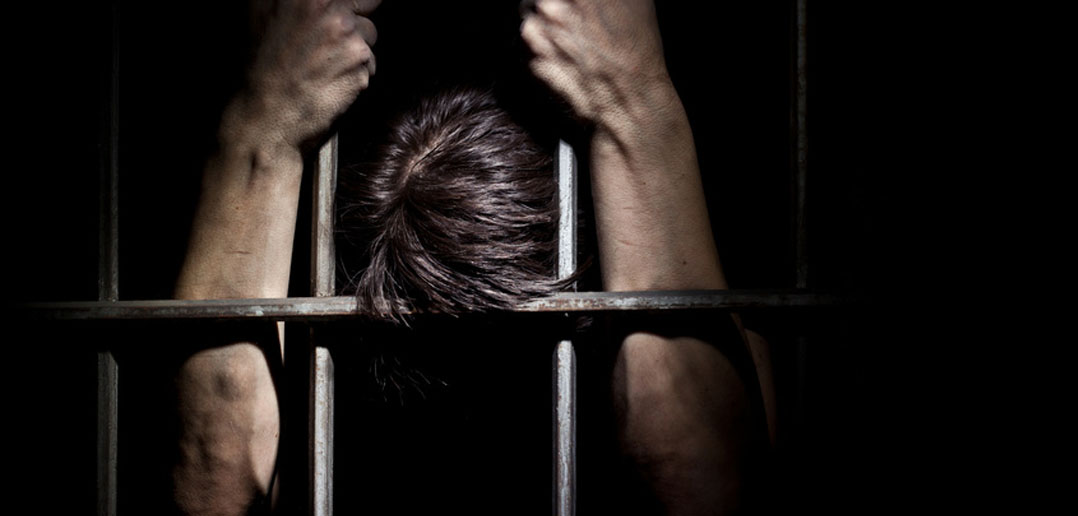Over the course of three years, prisoners from across the United States sent letters to Human Rights Watch detailing cases of sexual assault in prisons, most of them first-hand experiences. An inmate labeled A.H. wrote, “I have been raped by up to 5 black men and two white men at a time. I’ve had knifes at my head and throat. I had fought and been beat so hard that I didn’t ever think I’d see straight again…I’ve laid down without physical fight to be sodomized. To prevent so much damage in struggles, ripping and tearing.” Stories from inmates like A.H. highlight the violative conditions that are far too common behind bars in the land of the free.
A survey done by the Bureau of Justice Statistics over the span of two years found “4.0% of prison inmates and 3.2% of jail inmates reported experiencing one or more incidents of sexual victimization.” The survey ensured participation was anonymous and confidential, which also means there can be no valid form of follow-up on violated inmates. While four percent may not seem like a lot, four percent of a prison population in the country with the highest incarceration rate in the world amounts to a lot of people very quickly. Over the course of the study, it is estimated a total 88,500 people in prisons and jails were sexually assaulted by another inmate or staff member. Sexual misconduct is not a crime unique to male prisoners either. The rate of sexual victimization among female prison inmates was more prevalent than that of male inmates, amounting to 6.9 percent of all female inmates surveyed. The sheer number of inmates that are sexually assaulted is often overlooked and should be a number too high for comfort.
A huge issue with quantifying the number of rape incidents is underreporting, and this may be even more prevalent in prisons than in civilian life. Inmate R.D. from Virginia reports he “was severely beaten and gang raped, both orally and anally, by six black inmates” and when finished, one inmate remarked “If you snitch on us, we’ll kill you!!” The notion of “snitches get stitches” is far too familiar amongst victims of sexual assault in prisons. Unlike civilian life, inmates are bound in the same location as their assailants under constant threat of sexual abuse and beatings. Victims of sexual abuse in prisons are often inmates deemed as weak, especially if they are young and inexperienced. If they report the misconduct, inmates risk their safety in an environment where there simply is no place to escape. Incidents of sexual abuse including staff are particularly disturbing because they hold jurisdiction over the inmate’s life.
The relationship between prison staff and inmates is supposed to be regulatory and upholding of the law. Despite this, a total of 47,300 inmates reported an incident of sexual victimization involving facility staff over two years. The National Institute of Health found staff-on-inmate physical assault may be more prevalent than anticipated. Out of 6,964 inmates surveyed, 1,466 inmates reported being physically assaulted by facility staff. Of those assaults perpetrated by staff, 50 percent resulted in some sort of physical injury and “15% of staff-on-inmate physical assaults required hospitalization outside the prison.” Amnesty International USA reported, “correctional officials have subjected female inmates to rape, other sexual assault, sexual extortion, and groping during body searches. Male correctional officials watch women undressing, in the shower or the toilet.” Besides sexual acts between staff and inmates being illegal, this exemplifies an authoritative power using coercion as a means for sexual and physical assault.
The horrific conditions in American prisons has been illuminated before, most notably in the Prison Rape Elimination Act of 2003 signed into law by George W. Bush. This became the first ever federal law addressing sexual assaults among incarcerated populations. The law basically allocated federal funding toward researching inmate sexual assault, as well as imposed a zero tolerance policy for prison rape. The most recent study on sexual victimizations in prisons and jails, conducted throughout 2011 and 2012, found there has been no statistically significant decrease in sexual violations from the last study done in 2003. 14 years after the Prison Rape Elimination Act, we face the harsh reality that legislation did not cure the problem. Maybe the solution is not as simple as signing a bill into law.
In a place where guards turn a blind eye to crime, there is an opportunity for inmates to take justice into their own hands. T-Bone is a 6’5 former Marine serving a sentence after being convicted of robbery. T-Bone is known in American prisons for beating up rapists, standing up for smaller and weaker inmates who are susceptible to being sexually and physically abused. When asked about what motivates him to do what he does, T-Bone responded “Making rapists stop hurting other people was God pushing and guiding me. I didn’t win all of my fights with rapists — I almost lost my life more than once when I was stabbed and smashed in the skull with rocks in socks. I believe the only reason I’m alive is by God’s grace.” Sex offenders, specifically child molestors, are at the bottom of the prison hierarchy, receiving hate from virtually everybody else. A recent report from Vice investigates how sex offenders are viewed by other inmates and are disproportionately victim to murder. Kilo, an inmate in California, recounts a time when a guard walked on in him physically assaulting another inmate, “I said, ‘He’s a child molester’ and the police said, ‘I didn’t see nothing’ and walked back to the door and locked it.” There very much is a sense of vigilante justice within prison populations to bring the worst of the criminals to justice. It is the jurisdiction of other inmates that child molesters deserve to be severely beaten, raped, and killed for their crimes.
Vigilante justice, however, does not always work so smoothly. Inmate L.L. from Ohio recounts “My celly tried to rape me with a knife for a weapon, we fought and I got the knife and stabbed him to fight him off, I was charged with attempted murder and felonious assault and taken to trial, found guilty and received 12 to 15 years. The system feels that justice was done”. The notion of vigilante justice entails the ends justify the means; if justice is held to the highest importance, breaking the law is necessary to accomplish the goal. Vigilante justice, however, cannot be endorsed in a nation of laws. The law must be upheld by specific people whose powers have been delegated to them, for sake of maintaining order.
Maybe there are problems that lie within Americans’ mentalities regarding prison rape. It is common to hear jokes about dropping the soap, a comedic phrase reflecting the grim reality of sexual assaults in prison. It seems prison rape has simply been accepted and normalized as a part of American culture, something that is bound to happen in prison. Rather than looking at the violation of inmates as a problem needing remedy, our culture has desensitized prison rape and failed inmates by allowing them to be abused. This is a problem that seems to be uniquely American, as the prevalence of such jokes are nowhere near as common in other countries. The uncaring and dismissive attitude Americans have toward sexual abuses on inmates may be harder to change than signing a bill but may be more effective in preventing future misconduct. Bringing attention to the amount of sexual assaults that take place in prison should be convincing that it is our responsibility to care.
It is our duty to ensure prison inmates are protected and their rights are not infringed by other inmates or facility staff. The Eighth Amendment of the U.S. Constitution was intended to do just that by outlawing cruel and unusual punishment. Even for criminals guilty of the absolute worst crimes like child molestation, they should not be subject to sexual or physical assault by anybody. Vigilante justice, even in cases where it seems moral, must be condemned because it should not be necessary. By endorsing vigilante justice, we are by implication endorsing the notion that the United States is ineffective in upholding its laws and protecting its citizens. How can prisoners possibly be rehabilitated in this lawless environment? America’s indifference to and normalization of prison rape culture has allowed for the continuation of sexual assault behind bars. It is our responsibility to correct behavior within prisons, not indirectly endorse barbaric punishment by inmates and staff.
Featured Image Source: BortN66/Fotolia






Be First to Comment